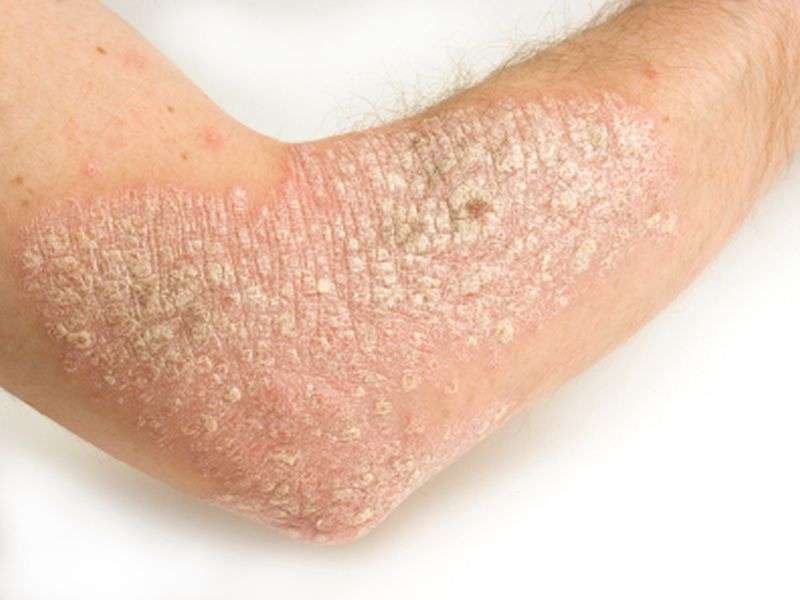(HealthDay)—Psoriasis patients have increased global arterial inflammation and subcutaneous inflammation, according to a study published online Oct. 27 in the British Journal of Dermatology.
Kasper F. Hjuler, M.D., from the Aarhus University Hospital in Denmark, and colleagues examined signs of vascular inflammation in 12 untreated patients with moderate-to-severe psoriasis compared with 23 retrospectively matched controls assessed using 18F-fluorodeoxyglucose (FDG) positron emission tomography computed tomography. Aortic maximal standardized uptake values (SUVmax) and target-to-background ratio (TBRmax) of the whole vessel and aortic segments were used to measure vascular inflammation.
The researchers found that psoriasis patients had increased arterial inflammation compared with controls (mean whole vessel TBRmax, 2.46 versus 2.09; P = 0.005) and had increased average normalized FDG uptake based on conservative 10-pixel cut-off SUVmax values (mean TBRmax-10pixels, 2.13 versus 1.92; P = 0.03). Higher FDG uptake values were seen for all aortic segments except the ascending aorta in psoriasis patients. Compared with controls, psoriasis patients had increased subcutaneous adipose tissue FDG uptake (mean TBRmax, 0.49 versus 0.31; P = 0.002; mean TBRmax-10pixels, 0.39 versus 0.28; P = 0.01).
"Both global arterial inflammation and subcutaneous inflammation were significantly increased in patients with moderate-to-severe psoriasis compared with controls," the authors write.
Several authors disclosed financial ties to pharmaceutical companies, including Pfizer, which funded the study.
More information: Full Text (subscription or payment may be required)
Journal information: British Journal of Dermatology
Copyright © 2016 HealthDay. All rights reserved.





















